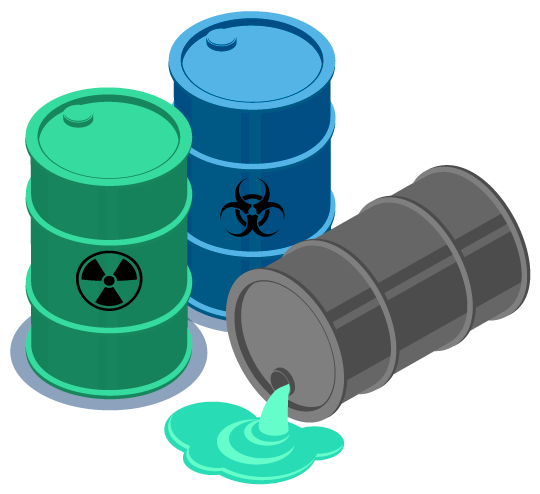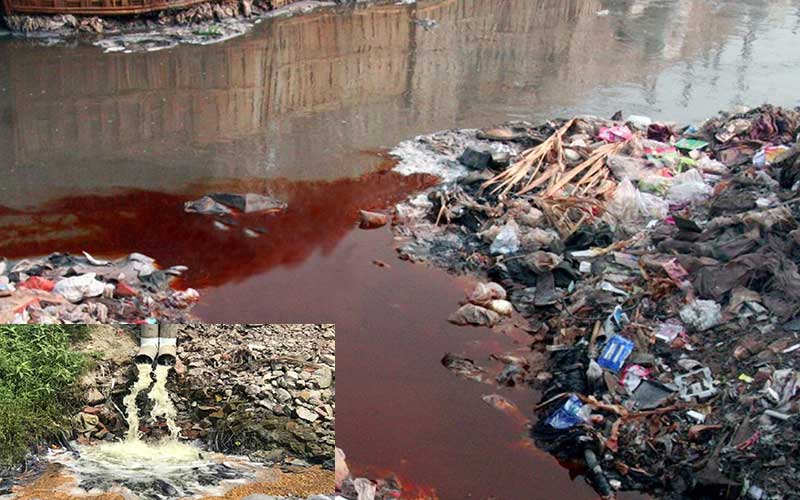Top Liquid Waste Disposal Melbourne: Trusted Solutions for Appropriate Waste Administration
Top Liquid Waste Disposal Melbourne: Trusted Solutions for Appropriate Waste Administration
Blog Article
Comprehending the Comprehensive Process of Liquid Garbage Disposal: Ideal Practices and Environmental Influence Factors To Consider
The management of fluid garbage disposal is a multifaceted concern that calls for an extensive understanding of different best methods and their linked environmental influences. From the kinds of fluid waste produced to the approaches utilized for collection, treatment, and final disposal, each action plays an important duty in guarding ecosystems and public wellness. As governing criteria evolve and modern technology developments, the conversation around these procedures comes to be significantly pertinent. What implications do these adjustments hold for future sustainability efforts, and just how can stakeholders make certain that they are appropriately resolved?
Kinds of Liquid Waste
Recognizing the various types of fluid waste is important for reliable monitoring and disposal techniques. Liquid waste can be extensively classified right into numerous kinds, each needing special handling and treatment techniques.
Industrial liquid waste commonly consists of harmful materials, consisting of hefty steels, solvents, and chemicals, produced during making procedures. These wastes necessitate stringent regulative conformity to protect human health and wellness and the setting. Residential fluid waste primarily refers to wastewater produced from houses, consisting of sewer and greywater, which, although less toxic, can still present substantial risks if improperly handled.
Agricultural liquid waste, including overflow from ranches, usually contains fertilizers and pesticides that can result in ecological destruction otherwise dealt with adequately. Medical liquid waste, created from healthcare centers, includes infected liquids such as physical liquids and chemicals, calling for specialized disposal approaches to stop infection and ecological contamination.
Last but not least, oil and oil waste, typically produced by restaurants and automotive industries, can create extreme clogs in sewage system systems otherwise handled appropriately. Recognizing these groups promotes targeted methods for treatment, compliance with laws, and reliable disposal techniques, ultimately advertising ecological sustainability and public health and wellness safety.

Collection Approaches
Efficient collection methods are crucial for the correct administration of liquid waste, ensuring that it is collected securely and effectively prior to therapy or disposal. Numerous techniques are used relying on the kind of liquid waste generated, the volume, and the details qualities of the waste.
One usual approach is using dedicated collection containers or sumps, which are developed to capture liquid waste at the resource. These systems commonly integrate pumps that facilitate the transfer of waste to bigger storage space containers or treatment centers. Additionally, mobile collection devices geared up with vacuum cleaner technology are utilized in scenarios where waste is generated periodically or in hard-to-reach areas.
For industrial setups, closed-loop systems can effectively lessen leaks and spills, permitting the recovery and reuse of liquid waste. It is additionally important to educate personnel on appropriate collection methods to mitigate dangers related to dangerous compounds.
In addition, executing routine upkeep timetables for collection equipment makes sure optimum efficiency and safety. The integration of sophisticated surveillance systems can boost collection performance by offering real-time data on waste degrees and prospective threats. Overall, efficient collection techniques are fundamental to lasting fluid waste management practices.
Treatment Processes
Treatment processes play an important function in the administration of fluid waste, changing potentially harmful materials right into reusable resources or secure effluents - liquid waste disposal. These procedures can be extensively classified right into physical, chemical, and organic approaches, each customized to attend to certain pollutants present in the waste stream
Physical treatment methods, such as sedimentation and filtration, job by eliminating put on hold solids and particulate matter. These techniques are commonly the very first step in the treatment chain, effectively reducing the lots on succeeding processes. Chemical treatments entail the usage of reagents to reduce the effects of damaging substances, speed up hefty metals, or oxidize organic toxins, consequently improving the safety of the effluent.
Organic therapy processes, consisting of activated sludge systems and anaerobic food digestion, maximize the natural abilities of microorganisms to weaken raw material. These methods are specifically reliable for wastewater including biodegradable contaminants. Advanced treatment modern technologies, such as membrane purification and advanced oxidation processes, are progressively used to accomplish greater degrees of filtration.
Integrating a mix of these therapy approaches not just makes sure compliance with regulatory requirements however also advertises environmental sustainability by recovering important resources from fluid waste.
Disposal Options
Just how can organizations ensure the liable and safe disposal of liquid waste? Efficient disposal options are essential for protecting public wellness and the environment. The primary techniques include land disposal, therapy, and incineration followed by discharge into community wastewater systems.
Land disposal includes the cautious containment of fluid waste in assigned land fills, ensuring that it does not seep into surrounding soil or water. Incineration, on the other hand, subjects liquid waste to heats, converting it into ash and gases, which require correct filtration to reduce emissions. This method is ideal for contaminateds materials that can not be treated click resources through conventional means.
In instances where liquid waste can be dealt with, companies may go with chemical or organic treatment processes to neutralize unsafe components prior to discharging the treated effluent right into community systems. This route usually aligns with regulative requirements, guaranteeing that the effluent meets safety read and security criteria.
Inevitably, companies should conduct comprehensive assessments of each disposal option to establish its feasibility, thinking about variables such as waste make-up, regulative compliance, and possible dangers to wellness and the setting. By selecting ideal disposal techniques, companies can add to an accountable waste management approach.
Ecological Impact
The environmental influence of liquid waste disposal is an essential consideration for companies looking for to reduce their environmental impact. In addition, the discharge of neglected or improperly dealt with waste into surface waters can result in eutrophication, leading to oxygen exhaustion and the subsequent fatality of fish and various other microorganisms.

To mitigate these impacts, companies must embrace finest methods such as executing rigorous waste treatment procedures, promoting recycling and reuse, and adhering to regulative standards. By taking a proactive approach to fluid waste administration, entities can significantly reduce their ecological impact while supporting lasting growth goals. Ultimately, a thorough understanding of the environmental influences linked with liquid waste disposal is crucial for educated decision-making and responsible stewardship of natural sources.
Final Thought
Efficient management of liquid waste is crucial for securing ecological honesty and public health. Inevitably, a comprehensive understanding of liquid waste disposal not only alleviates ecological impacts however additionally cultivates a commitment to accountable source monitoring and environmental stewardship.
The management of fluid waste disposal is a diverse problem that calls for a comprehensive understanding of different ideal methods and original site their connected ecological influences. From the kinds of liquid waste created to the approaches employed for collection, treatment, and final disposal, each action plays an important duty in guarding ecosystems and public health.The ecological impact of liquid waste disposal is a crucial consideration for organizations looking for to minimize their ecological footprint. Ultimately, a comprehensive understanding of the environmental influences linked with fluid waste disposal is crucial for educated decision-making and accountable stewardship of all-natural resources.
Inevitably, a thorough understanding of liquid waste disposal not only reduces environmental effects but additionally cultivates a dedication to accountable resource management and ecological stewardship.
Report this page